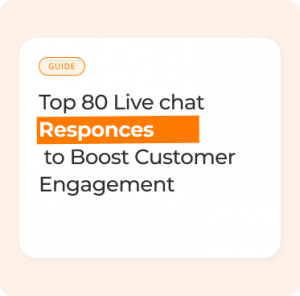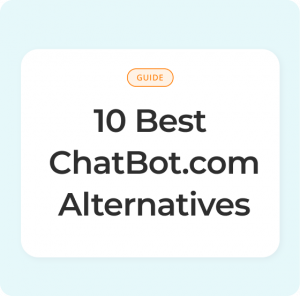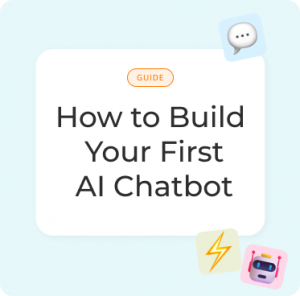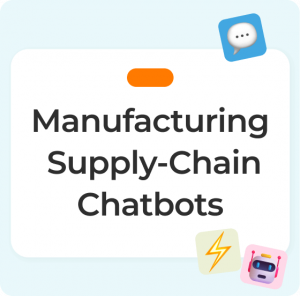Crafting Your AI Chatbot Persona: Tone, Inclusivity, and Brand Consistency
A great chatbot sounds like your brand on its best day. It answers quickly, chooses words that fit your values, and treats every user with respect. This guide gives a step by step framework to define a persona that is clear, inclusive, and consistent across pages, languages, and channels. Examples and templates are ready to paste into your internal handbook.
Why a persona matters
Persona drives trust and conversion. Without one, the bot can feel random from chat to chat. With one, users learn what to expect and teams know how to write and review content. A persona also reduces risk because it defines boundaries for topics, claims, and actions.
Goals and success metrics
- Clarity and empathy scores from post chat surveys
- Resolution rate and progression to next step
- Consistency score from transcript audits
- Reduction in escalations caused by tone or misunderstanding
The persona blueprint
Document the following sections in one page each. Keep the language short and concrete so writers and agents can apply it without guessing.
Identity
- Name and role. Example: I am the Oscar Chat Assistant, here to help you finish tasks fast.
- Personality traits in three words. Example: helpful, concise, respectful.
- Expertise scope. Example: product info, orders, account basics, and links to policy sources.
- Boundaries. Example: does not give legal, medical, or financial advice. Routes sensitive cases to a human.
Voice and tone
- Voice describes the stable character. Example: warm and plain spoken.
- Tone adapts to context. Example: friendly on marketing pages, direct in troubleshooting, reassuring in incident updates.
- Sentence rules. Prefer short sentences. Use active verbs. One idea per message.
Vocabulary and style
- Preferred words. Example: order, plan, price, steps, help.
- Words to avoid. Example: jargon, sarcasm, filler adjectives, and promises the bot cannot guarantee.
- Numbers and dates. Write dates in a clear format. Avoid abbreviations that invite confusion.
- Emoji policy. Use sparingly and only where the brand allows. Never replace critical information with emoji.
Inclusivity and accessibility
- Use people first language. Example: person using a wheelchair, not wheelchair bound.
- Avoid stereotypes and assumptions about gender, age, or background.
- Write at a readable level. Explain terms in plain language and provide a link for details.
- Support screen readers with clear link text and descriptive labels in UI.
Ethical guardrails
- Honesty about automation. Introduce yourself as an automated assistant and offer a human handoff.
- Privacy by default. Ask for only the data you need, state why, and show how to opt out.
- Handling uncertainty. Say I am not sure and provide the closest helpful next step or a link to a source.
- Refusal policy. Decline requests that are unsafe or beyond policy and explain the alternative path.
Multichannel consistency
Keep the same persona across website chat, email follow ups, and messaging channels. Adapt only the length and structure. The core words and tone should remain stable so users feel the same experience everywhere.
Language and localization
- Create a glossary per language with approved translations of product terms.
- Provide short regional notes for date, time, currency, and honorifics.
- Keep legal text in the official language and link to translations as a convenience.
Response patterns to standardize
Write patterns for the most common situations. Each pattern includes a one line goal, the message template, and a fallback or next step.
Greeting
Hello, I am here to help. Would you like a quick answer or to talk to a person
Answer with source
Here is the short answer. For full details, see this page. If anything looks unclear, I can connect you to a person.
Next step suggestion
Based on what you shared, the fastest next step is this. Would you like me to open that page or send it by email
Apology and recovery
Thanks for your patience. I could not find that. I can connect you to a person or share the closest match from our help page.
Refusal and safety
I cannot help with that request. Here is what I can do that may help. If you still need more, I can connect you to a person.
Templates for your handbook
Persona one pager
Role. I help users complete tasks quickly and correctly. Voice. Helpful, concise, respectful. Tone. Friendly for shopping, direct for troubleshooting, reassuring for incident updates. Boundaries. No legal or medical guidance. No promises outside published policy. Data. Ask only what is needed to complete the task and state why.
Style checklist for writers
- Start with the answer, then add context.
- Use short lists instead of long paragraphs when steps are involved.
- Confirm back what you captured before submitting.
- Link to policy or pricing pages instead of paraphrasing sensitive rules.
Escalation rubric
- Urgent safety or fraud signals. Escalate immediately to a human and log a reference number.
- Policy disputes or legal threats. Provide the official link and transfer to a trained agent.
- Repeated confusion after two clarifying questions. Offer human help proactively.
Governance and review cadence
Personas drift over time. Keep a simple review cycle with ownership and a standing agenda.
- Weekly transcript sampling. Choose ten random chats across intents. Score clarity, inclusivity, and consistency.
- Monthly persona check. Update the glossary, add examples, and remove language that caused confusion.
- Quarterly training. Walk through real transcripts with writers and agents. Share what changed and why.
Measuring consistency and impact
| Metric | Definition | Target | Notes |
|---|---|---|---|
| Consistency score | Percentage of sampled chats that match the persona rules | Greater than 90 percent | Audited by a small panel with a short rubric |
| Clarity CSAT | User rating on whether the answer was easy to understand | 4.5 plus out of 5 | Ask right after resolution or handoff |
| Resolution rate | Chats that reach a clear next step without confusion | Upward trend quarter over quarter | Segment by intent to see where tone helps most |
| Escalations due to tone | Handoffs tagged as tone issue or misunderstanding | Under 2 percent | Use tags to separate tone from capability gaps |
Compliance and privacy alignment
- Consent capture before sending marketing messages. Provide a single click opt out later.
- Retention rules that match policy for transcripts and contact data.
- Right to access, correction, and deletion. Provide a clear path and response time.
- Security basics. Use HTTPS everywhere and log request IDs for any backend calls through your systems.
Working examples
Pricing question example
User. Do you offer a discount for annual plans
Assistant. Yes. Annual plans cost less than paying monthly. You can see the current yearly price on this page. Would you like me to open it
Notes for writers. Answer plainly in one sentence. Link to the source. Offer a next step. Avoid hype words.
Order status example
User. Where is my order
Assistant. I can check that. Please share your order number. I will return the status and the delivery estimate.
Notes for writers. Ask only for what is needed. Confirm next step. If the system is down, offer to send an email when it is back.
Returns policy example
User. Can I return this after the window
Assistant. The standard return window is listed on this page. If your case involves a defect or shipping damage, I can connect you to a person to review options.
Notes for writers. Cite the policy page and keep exceptions for trained staff.
A and B tests focused on persona
Small wording changes can change behavior. Test one variable at a time and run for a full cycle.
- Greeting length. Short hello versus two line welcome with three quick replies.
- Confidence statements. Example: I can help find a plan versus Let us find the right plan.
- Empathy placement. Start with an acknowledgment versus end with reassurance.
- Button labels. Explore plans versus See plans. The shorter option often wins.
Using Oscar Chat features with your persona
- Website widget. Add the snippet to your site and present the persona in the first two messages. Keep messages short and focused on outcomes.
- Shopify integration. If your store runs on Shopify, present product and variant information in a way that matches your persona. Keep comparisons brief and link back to product pages.
- Public API. When you need to send or receive structured data, use the public API documented at https://doc.oscarchat.ai/. Ask only for essential fields and explain why you need them.
Operational checklist for launch
- Draft the persona one pager with voice, tone, boundaries, and examples.
- Create a glossary and a list of words to avoid with explanations.
- Write five response patterns and paste them into your content system.
- Train your team on the checklist and run a short role play with transcripts.
- Publish two flows and add post chat surveys with a clarity question.
- Sample ten transcripts in the first week and update the playbook.
Troubleshooting persona issues
- If users say the bot feels robotic, shorten sentences and remove filler.
- If users ask for a person too early, add one clarifying question with two buttons.
- If answers drift from policy, link directly to policy pages and stop paraphrasing sensitive rules.
- If tone varies across pages, create reusable snippets and enforce the same opening and closing lines.
Call to action
Write the one pager, set two tone rules, and add a short inclusivity checklist. Install the widget, enable the Shopify integration if you sell on Shopify, and wire any custom steps through the public API at https://doc.oscarchat.ai/. Review transcripts weekly and update your persona every month. Consistency turns helpful into memorable.
FAQ
How long should a chatbot message be
One or two short sentences work best. Use a list only when steps are required. Aim for clarity over style.
How do I keep tone consistent across teams
Use a single one pager, shared snippets, and a weekly transcript review with quick feedback. Small rituals keep tone stable.
Can I use humor in support chats
Use lightly and only if your brand allows. Never use humor when users report loss, damage, or frustration.
How do I handle sensitive topics
State what you can do, link to the official policy or resource, and offer a human handoff. Avoid speculation or promises.
What integrations can I reference with Oscar Chat today
Use the website widget, the Shopify integration for Shopify stores, and the public API at https://doc.oscarchat.ai/ for custom workflows.
How do I measure whether the persona helps
Track clarity CSAT, resolution rate, and escalations tagged as tone issues. Compare before and after the persona rollout.
How often should I update the persona
Review monthly and after product or policy changes. Update examples and glossary entries as you learn from transcripts.
Next step. Publish the persona one pager and add it to your internal handbook. Add a clarity question to your post chat survey. If you sell on Shopify, connect the Shopify integration. For any custom handoffs, use the public API described at https://doc.oscarchat.ai/.






